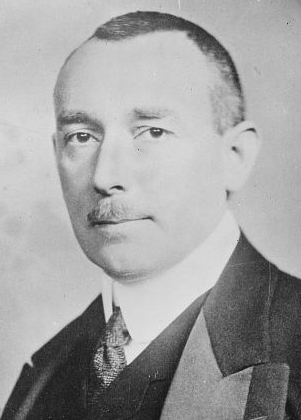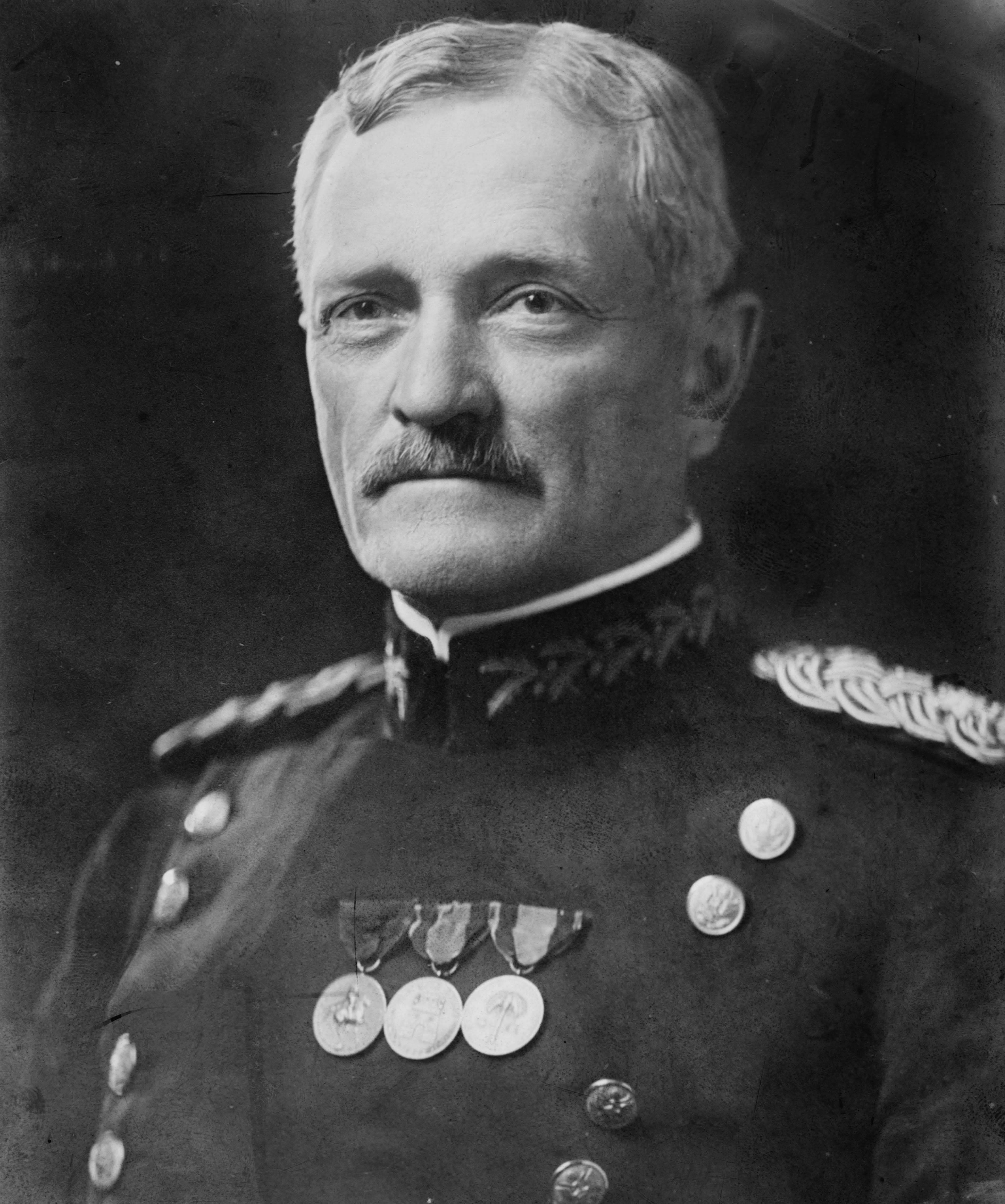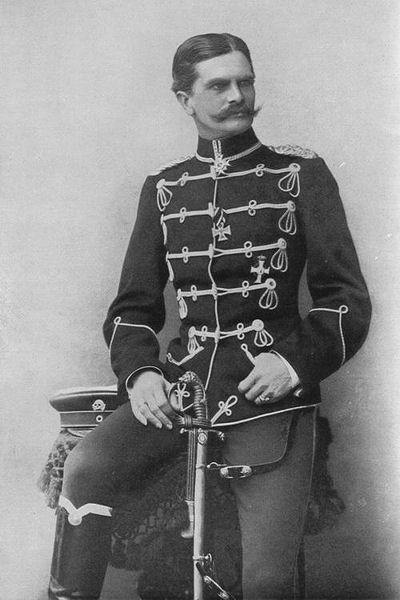|
Max Von Gallwitz
Max Karl Wilhelm von Gallwitz (2 May 1852 – 18 April 1937) was a German general from Breslau (Wrocław), Silesia, who served with distinction during World War I on both the Eastern and Western Fronts. Biography Gallwitz grew up in a Catholic family in Breslau and joined the Prussian Army in 1870. In 1891, he married Friedrike. They had a daughter and son Werner, who became a lieutenant general in the Second World War. Gallwitz was a First World War corps commander ( Guards Reserve Corps) on the Western Front, but he was almost immediately transferred east to join the Eighth Army under Hindenburg. In 1915, he took command of ''Armee-Gruppe'' Gallwitz (later redesignated Twelfth Army) and participated in the Galicia offensive alongside Mackensen, who commanded the Eleventh Army. Towards the end of 1915, Gallwitz succeeded Mackensen as commander of the Eleventh Army, as the latter campaigned against Serbia. In 1916, he moved back to the Western Front and defended against ... [...More Info...] [...Related Items...] OR: [Wikipedia] [Google] [Baidu] |
Wrocław
Wrocław is a city in southwestern Poland, and the capital of the Lower Silesian Voivodeship. It is the largest city and historical capital of the region of Silesia. It lies on the banks of the Oder River in the Silesian Lowlands of Central Europe, roughly from the Sudetes, Sudeten Mountains to the north. In 2023, the official population of Wrocław was 674,132, making it the third-largest city in Poland. The population of the Wrocław metropolitan area is around 1.25 million. Wrocław is the historical capital of Silesia and Lower Silesia. The history of the city dates back over 1,000 years; at various times, it has been part of the Kingdom of Poland, the Kingdom of Bohemia, the Kingdom of Hungary, the Habsburg monarchy of Austria, the Kingdom of Prussia and German Reich, Germany, until it became again part of Poland in 1945 immediately after World War II. Wrocław is a College town, university city with a student population of over 130,000, making it one of the most yo ... [...More Info...] [...Related Items...] OR: [Wikipedia] [Google] [Baidu] |
Western Front (World War I)
The Western Front was one of the main Theatre (warfare), theatres of war during World War I. Following the outbreak of war in August 1914, the Imperial German Army, German Army opened the Western Front by German invasion of Belgium (1914), invading Luxembourg and Belgium, then gaining military control of important industrial regions in Third Republic of France, France. The German advance was halted with the First Battle of the Marne, Battle of the Marne. Following the Race to the Sea, both sides dug in along a meandering line of fortified trench warfare, trenches, stretching from the North Sea to the Swiss frontier with France, the position of which changed little except during early 1917 and again in 1918. Between 1915 and 1917 there were several offensives along this Front (military), front. The attacks employed massive artillery bombardments and massed infantry advances. Entrenchments, machine gun emplacements, barbed wire, and artillery repeatedly inflicted severe casualties ... [...More Info...] [...Related Items...] OR: [Wikipedia] [Google] [Baidu] |
German National People's Party
The German National People's Party (, DNVP) was a national-conservative and German monarchy, monarchist political party in Germany during the Weimar Republic. Before the rise of the Nazi Party, it was the major nationalist party in Weimar Germany. It was an alliance of Conservatism in Germany, conservative, German nationalism, nationalist, monarchist, , and antisemitic elements supported by the Pan-German League. Ideologically, the party was described as subscribing to authoritarian conservatism, German nationalism, and monarchism. Until 1931, the party also advocated for National liberalism, national liberal and Protectionism, protectionist economic policies, embracing corporatism, corporatist economic policies from 1931 onwards. Some members like the populist media mogul Alfred Hugenberg embraced Economic nationalism, economic nationalism and Statism, statism. Under Hugenberg the party is seen by some as a ''German Tory conservatism, Tory conservative'' party. It held anti-commu ... [...More Info...] [...Related Items...] OR: [Wikipedia] [Google] [Baidu] |
Reichstag (Weimar Republic)
The Reichstag of the Weimar Republic (1919–1933) was the lower house of Germany's parliament; the upper house was the Reichsrat (Germany), Reichsrat, which represented the states. The Reichstag convened for the first time on 24 June 1920, taking over from the Weimar National Assembly, which had served as an interim parliament following the collapse of the German Empire in November 1918. Under the Weimar Constitution of 1919, the Reichstag was elected every four years by universal, equal, secret and direct suffrage, using a system of party-list proportional representation. All citizens who had reached the age of 20 were allowed to vote, including women for the first time, but excluding soldiers on active duty. The Reichstag voted on the laws of the Reich and was responsible for the budget, questions of war and peace, and confirmation of state treaties. Oversight of the Reich government (the ministers responsible for executing the laws) also resided with the Reichstag. It could f ... [...More Info...] [...Related Items...] OR: [Wikipedia] [Google] [Baidu] |
Battle Of Saint-Mihiel
The Battle of Saint-Mihiel was a major World War I battle fought from 12 to 15 September 1918, involving the American Expeditionary Forces (AEF) and 110,000 French troops under the command of General John J. Pershing of the United States against German positions. The U.S. Army Air Service played a significant role in this action.Hanlon (1998)''History of War'' (2007) This battle marked the first use of the terms "D-Day" and " H-Hour" by the Americans. The attack at the Saint-Mihiel salient was part of a plan by Pershing in which he hoped that the Americans would break through the German lines and capture the fortified city of Metz. It was the first large offensive launched mainly by the United States Army in World War I, and the attack caught the Germans in the process of retreating. This meant that their artillery was out of place and the American attack, coming up against disorganized German forces, proved more successful than expected. The Saint-Mihiel attack establishe ... [...More Info...] [...Related Items...] OR: [Wikipedia] [Google] [Baidu] |
1st Army (German Empire)
The 1st Army () was an army level command of the German Army in World War I. It was formed on mobilization in August 1914 from the VIII Army Inspectorate. The army was dissolved on 17 September 1915, but reformed on 19 July 1916 during the Battle of the Somme. It was finally disbanded in 1919 during demobilization after the war. History First formation The 1st Army during World War I, fought on the Western Front and took part in the Schlieffen Plan offensive against France and Belgium in August 1914. Commanded by General Alexander von Kluck, the 1st Army's job was to command the extreme right of the German forces in attacking the left flank of the French Army and encircling Paris, bringing a rapid conclusion to the war. His army had the greatest striking power of the offensive, a density of about 18,000 men per mile of front (about 10 per metre). The First Army captured Brussels on 20 August and was almost successful in defeating France but was halted just 13 miles ... [...More Info...] [...Related Items...] OR: [Wikipedia] [Google] [Baidu] |
Army Group
An army group is a military organization consisting of several field army, field armies, which is self-sufficient for indefinite periods. It is usually responsible for a particular geographic area. An army group is the largest field organization handled by a single commander – usually a General Officer, full general or field marshal – and it generally includes between 400,000 and 1,000,000 soldiers. In the Polish Armed Forces and former Red Army, Soviet Red Army an army group was known as a Front (military formation), Front. The equivalent of an army group in the Imperial Japanese Army was a "general army" (). Army groups may be multi-national formations. For example, during World War II, the Sixth United States Army Group, Southern Group of Armies (also known as the U.S. 6th Army Group) comprised the Seventh United States Army, U.S. Seventh Army and the First Army (France), French First Army; the 21st Army Group comprised the Second Army (United Kingdom), British Second Ar ... [...More Info...] [...Related Items...] OR: [Wikipedia] [Google] [Baidu] |
Battle Of The Somme
The Battle of the Somme (; ), also known as the Somme offensive, was a battle of the First World War fought by the armies of the British Empire and the French Third Republic against the German Empire. It took place between 1 July and 18 November 1916 on both sides of the upper reaches of the river Somme (river), Somme in France. The battle was intended to hasten a victory for the Allies of World War I, Allies. More than three million men fought in the battle, of whom more than one million were either wounded or killed, making it one of the List of battles by casualties, deadliest battles in human history. The French and British had planned an offensive on the Somme during the Chantilly Conferences, Chantilly Conference in December 1915. The Allies agreed upon a strategy of combined offensives against the Central Powers in 1916 by the French, Russian, British and Italian armies, with the Somme offensive as the Franco-British contribution. The French army was to undertake the m ... [...More Info...] [...Related Items...] OR: [Wikipedia] [Google] [Baidu] |
Serbian Campaign (World War I)
The Serbian campaign was a series of military expeditions launched in 1914 and 1915 by the Central Powers against the Kingdom of Serbia during the First World War. The first campaign began after Austria-Hungary declared war on Serbia on 28 July 1914. The campaign, dubbed a "punitive expedition" () by the Austro-Hungarian leadership, was under the command of Austrian General Oskar Potiorek. It ended after three unsuccessful Austro-Hungarian invasion attempts were repelled by the Serbians and their Montenegrin allies. The victory of the Royal Serbian Army at the battle of Cer is considered the first Allied victory in World War I, and the Austro-Hungarian Army's defeat by Serbia has been called one of the great upsets of modern military history. The second campaign was launched, under German command, almost a year later, on 6 October 1915, when Bulgarian, Austro-Hungarian, and German forces, led by Field Marshal August von Mackensen, successfully invaded Serbia from ... [...More Info...] [...Related Items...] OR: [Wikipedia] [Google] [Baidu] |
August Von Mackensen
Anton Ludwig Friedrich August Mackensen (ennobled as von Mackensen in 1899; 6 December 1849 – 8 November 1945), was a German field marshal. He commanded Army Group Mackensen during World War I (1914–1918) and became one of the German Empire's most prominent and competent military leaders. After the armistice of 11 November 1918, the victorious Allies interned Mackensen in Serbia for a year. In 1920, he retired from the army. In 1933 Hermann Göring made him a Prussian state councillor. During the Nazi era (1933–1945), Mackensen remained a committed monarchist and sometimes appeared at official functions in his World War I uniform. Senior Nazi Party members suspected him of disloyalty, but nothing was proven against him. Early life and career Mackensen was born in Haus Leipnitz, near the village of Dahlenberg (today part of Trossin) in the Prussian Province of Saxony, to Ludwig and Marie Louise Mackensen. His father, an administrator of agricultural enterprises, sen ... [...More Info...] [...Related Items...] OR: [Wikipedia] [Google] [Baidu] |
Paul Von Hindenburg
Paul Ludwig Hans Anton von Beneckendorff und von Hindenburg (2 October 1847 – 2 August 1934) was a German military and political leader who led the Imperial German Army during the First World War and later became President of Germany (1919–1945), President of Germany from 1925 until his death in 1934. He played a key role in the Nazi seizure of power in 1933 when he appointed Adolf Hitler as Chancellor of Germany. Hindenburg was born to a family of minor Prussian nobility in the Grand Duchy of Posen. Upon completing his education as a cadet, he enlisted in the Third Regiment of Foot Guards as a second lieutenant. He saw combat during the Austro-Prussian War, Austro-Prussian and Franco-Prussian War, Franco-Prussian wars. In 1873, he was admitted to the prestigious Preußische Hauptkadettenanstalt, War Academy in Berlin, where he studied before being appointed to the General Staff Corps. In 1885, he was promoted to major and became a member of the German General Staff. After ... [...More Info...] [...Related Items...] OR: [Wikipedia] [Google] [Baidu] |
8th Army (German Empire)
The 8th Army () was an army level command of the German Army in World War I. It was formed on mobilization in August 1914 from the I Army Inspectorate. The army was dissolved on 29 September 1915, but reformed on 30 December 1915. It was finally disbanded in 1919 during demobilization after the war. History On mobilization in August 1914, the 8th Army Headquarters was formed in Posen to command troops stationed in East Prussia to defend against the expected Russian attack, Plan XIX. Initially, the Army commanded the following formations: Concerned by the defeat at Gumbinnen and the continued advance of the Russian Second Army from the south, Prittwitz ordered a retreat to the Vistula, effectively abandoning East Prussia. When he heard of this, Helmuth von Moltke, the German Army Chief of Staff, recalled Prittwitz and his deputy to Berlin. They were replaced by Paul von Hindenburg, called out of retirement, with Erich Ludendorff as his chief of staff. Under its new ... [...More Info...] [...Related Items...] OR: [Wikipedia] [Google] [Baidu] |






